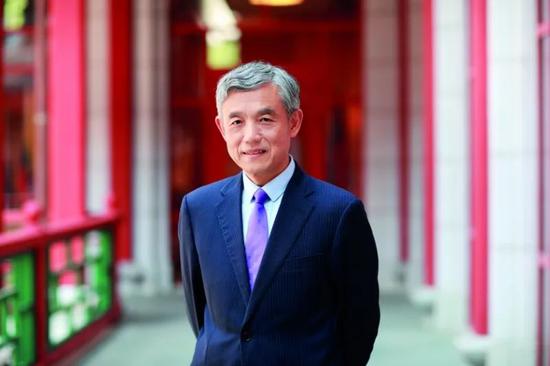Tsinghua professor expounds on 'active government' within socialist market economy
(ECNS) –The concept of an “active government” has been a topic of discussion in recent years, with debates on the appropriate extent of governmental involvement in various sectors. However, the third plenary session of the 20th Central Committee of the Communist Party of China (CPC) has shed light on this issue, a senior Chinese scholar has said.
Xue Lan, a senior professor and chairman of the Academic Committee of the School of Public Policy and Management at Tsinghua University, noted that over the past decade, China has recognized that achieving high-quality economic development requires more than just competitive mechanisms and diverse market entities. It also necessitates a series of supporting institutions, such as transparent and fair legal system and effective regulations.
The communique issued by the third plenary session of the 20th Central Committee of the CPC last Thursday outlined a vision for China to establish a comprehensive, high-standard socialist market economy by 2035.
In an interview with China News Weekly, Xue emphasized the importance of integrating improvements to the socialist market economy system within the broader framework of national governance.
“China is transitioning from a planned economy to a socialist market economy. On one hand, some market entities are still underdeveloped and need encouragement to explore and innovate. On the other hand, the government is gradually establishing a regulatory system for the market to address market failures and ensure the healthy development of enterprises,” Xue said.
He explains this is what the plenary session communique refers to by “lifting restrictions on the market” while “ensuring effective regulation.” The goal is to better maintain order in the market and remedy market failures. By doing so, China aims to ensure smooth flows in the national economy and unleash the internal driving forces and creativity of the society as a whole.
“In recent years, the concept of an ‘active government’ has been a topic of considerable debate,” Xue noted. “However, there has been a lack of clarity regarding which specific areas warrant government intervention and which do not.”
He highlighted that the third plenary session provides a clear elucidation on this matter. The session stated that sound macro policy and regulation, along with effective governance, is essential for China to fully leverage the institutional advantages of its socialist market economy. Consequently, it is imperative for China to improve its macro regulatory systems. This entails pursuing coordinated reforms across fiscal, taxation, financial, and other major sectors, while striving to enhance the consistency of macro policy orientation.
“A critical challenge,” Xue pointed out, “is the lack of sufficient coordination at the macro level when the government regulates the market. This deficiency can result in potentially conflicting policies emanating from various departments.”
For example, he said, while encouraging full opening-up, there are multiple restrictions on the normal operations of foreign enterprises. To address this situation, the third plenary session particularly emphasized the need for more systematic and holistic planning at the national macro-strategy level to ensure policy consistency and effectively implement coordinated policies, he concluded.

